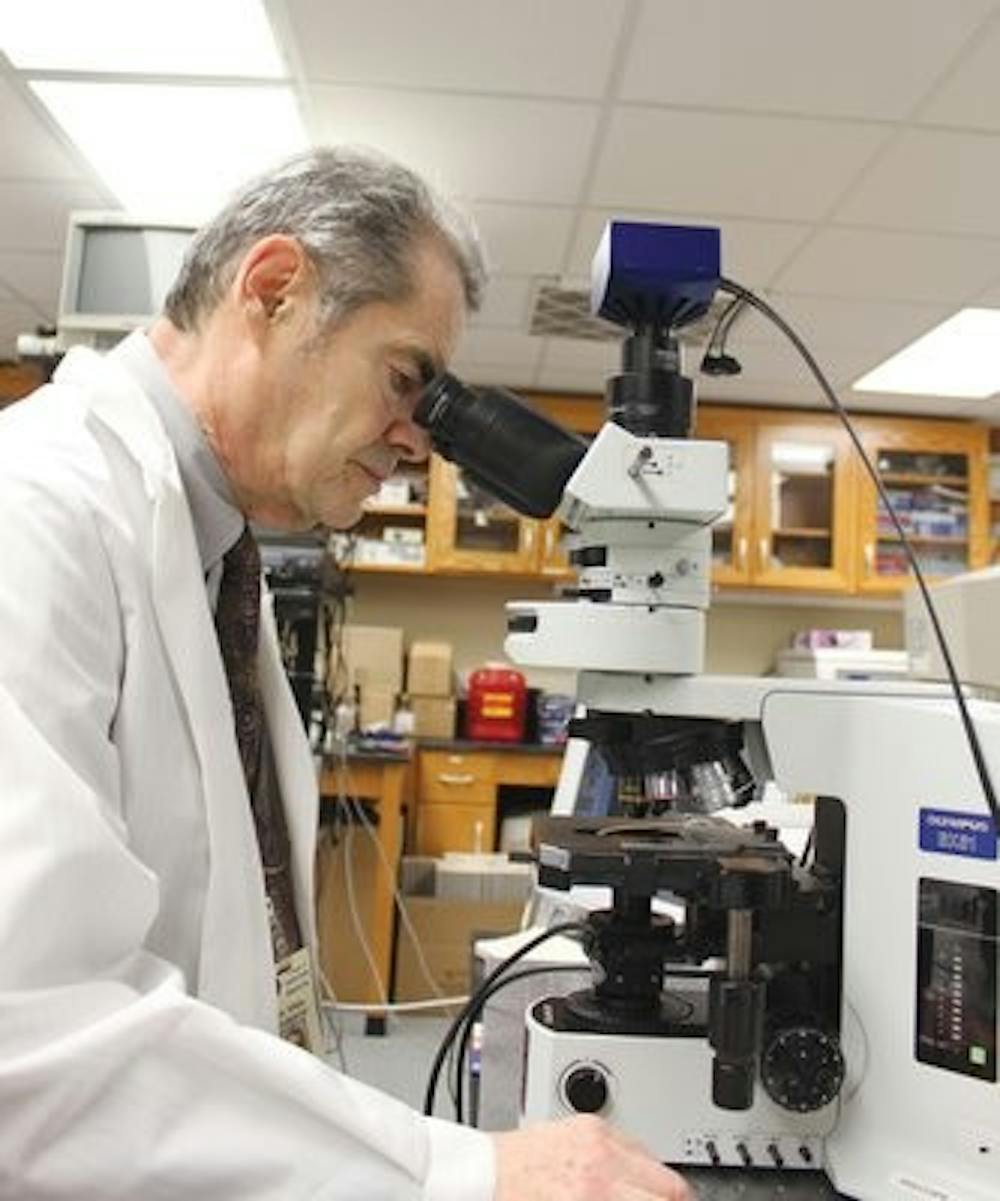Vitaly Vodyanoy may not have a cape or mask, but he is Auburn University's real-life superhero.
The physiology professor and director of the biosensor laboratory at Auburn said Edmund Optics notified him of his award June 14.
"I feel proud and humble," Vodyanoy said.
Edmund Optics Inc. has been a leading supplier of optics and optical components to industry for 67 years. It designs and manufactures a wide variety of multi-element lenses, lens coatings, imaging systems and Opto-Mechanical equipment.
Vodyanoy possesses enhanced resolving superpowers enabling real-time imaging of living cellular structures, according to Edmund Optics.
"This microscope can produce live images of small cells and some large viruses," Vodyanoy said. "When we say microscope, we practically mean illumination system."
Vodyanoy and his team have developed a cutting-edge microscopy technique. It features increased resolution and a dual-mode fluorescence imaging capable of identifying viruses and observation of nanoparticles.
"One drawback is in order to make a photograph, you need to kill cells, then hydrate, then take all of the water, then color these metals and then make a photograph," Vodyanoy said. "In this method of microscopy, you use similar resolution, but live systems."
Vodyanoy's team is made up of Iryna Sorokulova, research professor, Oleg Pustovyy, research assistant, Ludmila Globa, research associate Rejesh Guntupalli, postdoctoral fellow and Chris Moore.
Vodyanoy's achievements allow researchers to see these living cells without any sample preparation in fine detail.
The real-time observation and analysis is producing further development in advanced sensing techniques, which includes environmental monitoring, label-free biomedical imaging, trace detection and pathogen sensing, Edmund Optics said.
Although he was recently named a real-life superhero, Vodyanoy said he and his team have still been hard at work in the laboratory.
Vodyanoy said they have six major projects, some which are currently being worked on and others that are complete. One took place in 2008, when NASA contacted Vodyanoy to build a microscope.
Vodyanoy developed a device that contained a battery pack, condenser and bulb with a built-in collimator that attaches to standard research microscopes, producing high-resolution images which had enough light that it could be used, he said.
Two of Vodyanoy's projects that are still being worked on could change the world.
"What we found that is absolutely amazing is if you take a look at the blood, you can find beyond normal components for what you normally see in blood," Vodyanoy said. "There are some particles which were originally not understood. With the help of the microscope we found this particle."
The particle that was found is too small to see with a normal microscope Vodyanoy said. He also said these protein-nanoparticles have a metal core.
"We found out that some of these particles kill cancer cells," Vodyanoy said.
While the project is only in the early stages, Vodyanoy said there could be a proposal for metal drugs in the future.
"It was done only by the help of this microscope," Vodyanoy said. "We made real-life photographs of cancer cells dying by the attack of these nanoparticles."
While curing cancer would be an incredible achievement, Vodyanoy and company are working on another project that is just as important.
They are currently working with primo-vascular cells which are basically natural stem cells within the body.
"This topic on primo-vascular systems has very serious implications," Vodyanoy said. "The property of this vascular system is only the beginning of the discovery."
Vodyanoy said this system is extremely powerful and responsible for regeneration and reconstruction of cells and organs.
"It operates through stem cells, so we don't need stem cells to be injected into our body," Vodyanoy said.
Details on the primo-vascular system are not fully known yet. Vodyanoy said there will be an essay released on it in August.
Although he isn't watching the streets at night stopping crime in Auburn, Vodyanoy is changing the world with the research he and his team are doing.
"I have a feeling that the research with high resolution has just begun," Vodyanoy said.
Do you like this story? The Plainsman doesn't accept money from tuition or student fees, and we don't charge a subscription fee. But you can donate to support The Plainsman.





